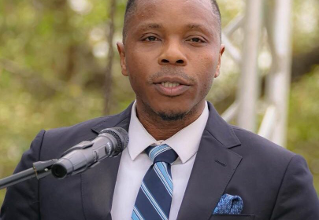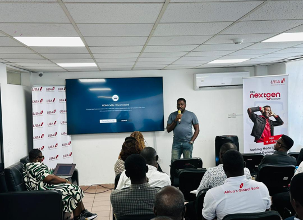NASSIT Conducts Press Tour on Sewa Grounds Market

In a bid to assess the progress made so far in the construction work of the Sewa grounds Market, NASSIT being the financier of the Project, had taken both the Electronic and print media on a press tour on Tuesday 8th August, 2023 to assess the progress made so far and the challenges thereof.
Giving the overall objective of the project, while taking the press on a conducted tour of the facilities, the Project Manager, Abel Konomakeh, started off by giving a general overview of the project, which he said, was divided into seven lots. He gave a breakdown of the seven lots of the project, which comprise of open Market, Water System, CCTV Camera, Control room for fire station, car park, warehouses for storing perishable and non- perishable goods, Police Post, toilet facility, daycare and many more.
He said for the open market facility a huge percentage of the work has been done, adding that for the other facilities the work is in progress and at advanced stage as they are expected to be completed soon.
He also spoke about the challenges surrounding the project but said they have been able to surmount them as the work is still ongoing and expressed hope that very soon the project will be completed and open to the public for business. “Even though there are some challenges in the project, but as you can see, the work is at advanced stage and we have made significant progress”, said the Project Manager.
In an interview with some of the market women, they lavished praises on NASSIT and the contractors for doing a great Job. “We are satisfied with significant progress made in the work of Sewa Grounds Market and we are hoping for the market to be completed soon”, they said, noting that when the market is completed they are ready to go there and do their business and appealed to the Government to consider them whenever the market is opened for business.





